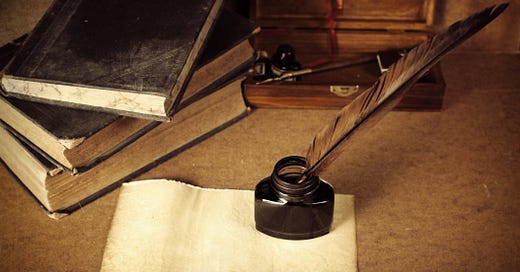On Writing
A cavalcade of writing stars: Tom Wolfe, Peter De Vries, John Updike, Anne Lamott, Stephen King, Mary Karr and more!, plus Steve and Justin Townes Earle, plus bluebird porn
Editor’s Note: Do you know where you’re going to? Do you like the things that life is showing you? If not, ask yourself some hard questions. If you have easier questions, Ask Matt at askmattlabash@gmail.com
Dear Matt,
We all know you're a fantastic writer. Truth be told, we're here for your writing, not your content (enough about fly fishing already, will ya!). In your estimation, what three tips do you have for good writing? (They can be either organizational or stylistic, or both.)
Thanks,
Brandon
Whoa, Brandon. I imagine your head is probably swollen from having people tell you “Let’s go” all the time. But let’s not go. Let’s stop you right there. First, a lot of readers don’t come here for the writing at all. They come for the world-weariness, disillusionment, and moral uncertainty. Second, my many fly fishing readers now detest you.
But you’re okay by me! I was going to edit out your generous compliment, but figured it would be selfish to not share your praise with a wider audience. (I’m a giver.) To answer your question, I’m not one for providing neat’n’clean three-point programmatic instruction – that feels too much like a TedTalk, or Axios’s Smart Brevity® (which I’m forbidden to use since they’ve trademarked it), or a PowerPoint presentation. If I were any good at those, I’d probably be off in the wilds of corporate America making more money, instead of playing dancing monkey on the page as I have been my entire adult life.
But if there’s just one thing you need to know about writing…….




